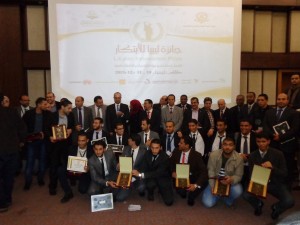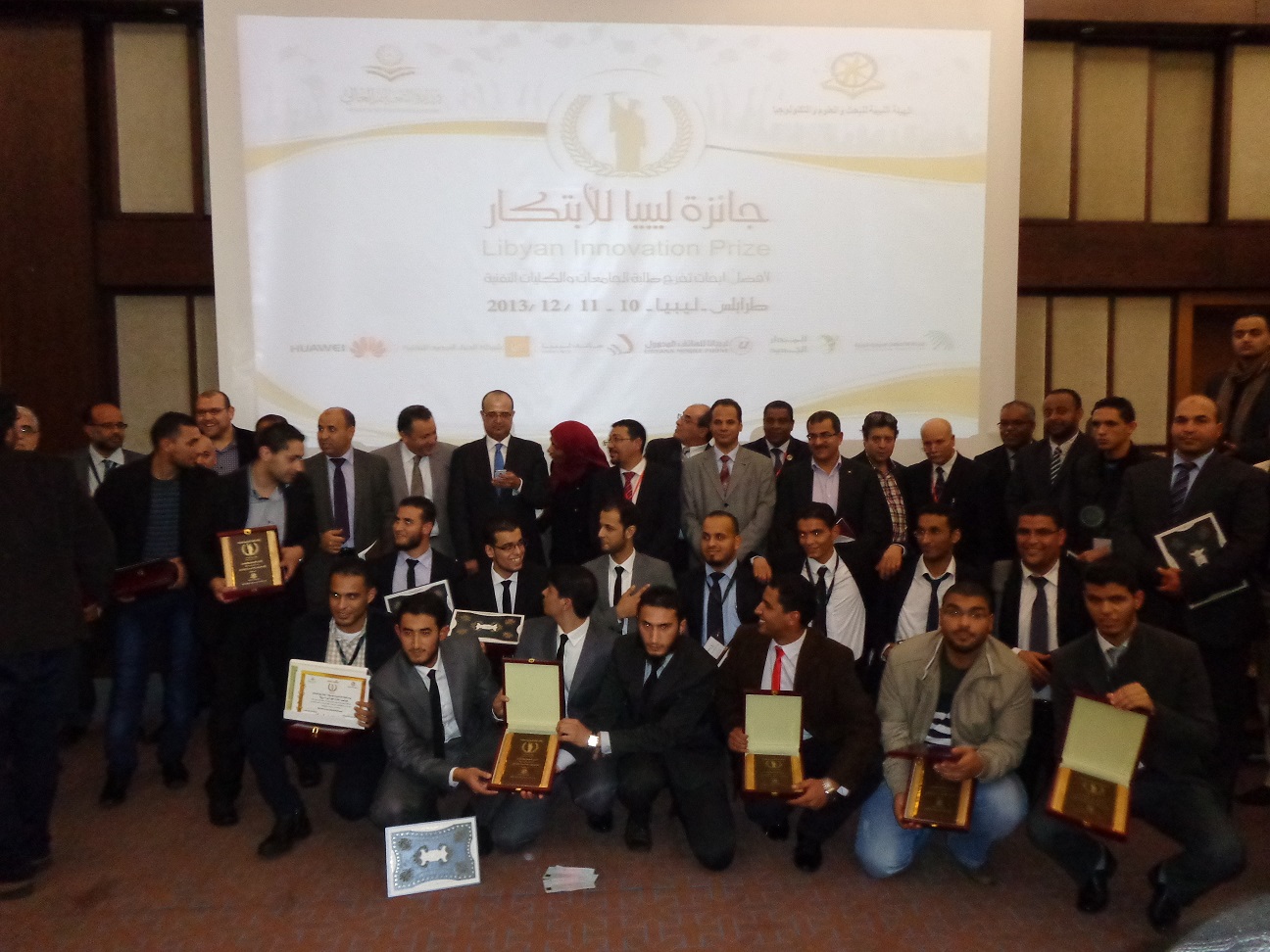By Sami Zaptia.

Tripoli, 14 December 2013:
The Ministry of Higher Education (www.highereducation.gov.ly) and the National Authority for Scientific Research (www.nasr.ly) held the . . .[restrict]inaugural “Libyan Innovation Prize” from 10-11 December at the Radisson hotel, Tripoli.
The two-day event was to honour the top 45 undergraduate final year projects at Libyan universities and Technical Colleges covering the various fields of engineering as well as architecture, English language, ITC and pharmacy. Participating students were from universities in Tripoli, Benghazi, Misrata, Nefusa Mountains and Zliten.
The event was attended by numerous dignitaries including former Deputy Prime Minister in the Al-Kib government and recent Prime Minister-elect, Mustafa Abushagur and former Deputy Prime Minister in the Zeidan government Awad Barasi, Mustafa Rajbani the former Labour Minister, Hamid Baghdadi the GNC Higher Education Committee head, and Juma Gamaty, head of the Tagheer Party. There were also, as would be expected, numerous academics and students at the event.
Mustafa Abushagur was invited by the organisers to give a presentation on his educational and training journey of 40 years and said that he was very impressed by the level of “proficiency and innovation” of many of the undergraduate projects that were presented.
Abushagur said that the “real balance of wealth of the Libya is its capital of knowledge and that is the foundation of a modern economy. This capital”, he added, “is created through education and the attention paid to scientists, and through the creation of the right climate and the encouragement of scientific research and the production of knowledge and converting this into economic value . Concern for education in all its stages is the foundation stone on which to build a modern state”, he added.
“The young people who participated and competed for this award are the asset of Libya”, and that he was “pleased with their scientific capabilities , raising my hope in that if these young people have the opportunities they would be creative scientists and engineers. I extend my warmest congratulations to all of them for this dazzling success for they are the hope for our beloved country”, he concluded.
Over the two days of the event, 45 final year projects from 8 different faculties were presented, from an original 150 submissions. After making their presentations, students had to answer questions from the prize judging committee and from the general public.
The first prize was LD 7,000, the second LD 4,000 and the third LD 2,000. The winners were also granted a job interview by Libya’s telecoms companies.
The first prize for English went to Isra Buzeid from Misrata University, Fawzia Al-Dabaa from Tripoli University came first in Pharmacology, Ayoub Al-Shreek won the prize for Chemical, Oil and Geology Engineering from Tripoli University, Zeinab Al-Ghoul from Misrata University won the ITC prize, Hmeed Badi from Misrata University won the Mechanical, Aeronautical & Naval Engineering prize , Rami Al-Jahany from Benghazi University won the civil engineering prize and Amin Embarak from Tripoli University won the Electric and Electronic engineering prize.
Last year there was a trail run of the prize held only for engineering faculties all over Libya. Last year’s winners were all subsequently employed by Libya’s telecom sector, who were the sponsors of the prize. The organisers announced that next year the Innovation Prize would include masters students locally and from overseas.
It will be recalled, and as reported on by Libya Herald, that there is another prize, the “Enterprise Award” (www.ea-libya.ly) which is awarded for existing students at higher education institutes and universities for the best business ideas. The first prize for that award is LD 50,000, second is LD 30,000 and third is LD 15,000.
The awards are designed to promote innovation among young entrepreneurs. The chance to enter the Enterprise Award competition was open to the half million students in Libya’s 12 universities and 107 vocational education and training institutions.
In the first stage of the awards, 250 projects were selected. Twenty five made it to the final stage, from which the best three were chosen, [/restrict]








